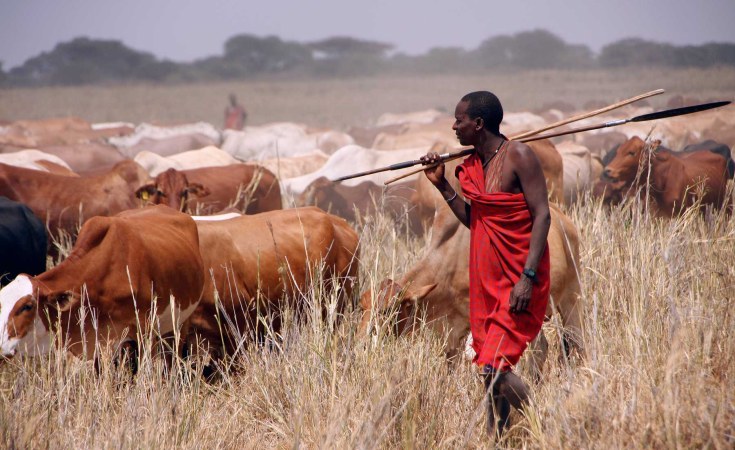The Minister of Agriculture and Rural Development, Dr. Mohammad Abubakar yesterday said stakeholders must come together to find a permanent solution to the incessant farmer-herder clashes ravaging the country.
The minister said the conflict currently threatens food and national security in Nigeria, adding that the crisis predates the existence of the country as an independent, sovereign nation.
Speaking at the opening of the regional summit on human and climate security challenges and farmer-herder conflict resolution in the livestock sector, in Abuja, Abubakar noted that the summit became critical in providing the opportunity for dialogue and discourse on the way forward for achieving peaceful coexistence between crop farmers and livestock.
The summit, with the theme, “Promoting Peace and Climate Security in the Crop and Livestock farming Sectors”, was jointly organised by the Federal Ministry of Agriculture and Rural Development (FMARD), the United Nations Development Programme (UNDP) and the Food and Agricultural Organisation of the United Nations (FAO).
The minister said the previous and current generations of farmers and herders have had to grapple with the conflict especially rural dwellers who have understood and managed the situation properly using traditional methods.
However, Abubakar pointed out that the crisis had assumed different dimensions which had lately called for deep introspection into unravelling the causes of the heightened, unwarranted attacks by both actors in the conflict and more innovative ways of addressing it.
According to him, the surge in the, “age-long conflict has been recently attributed to the complex interaction between the changing nature of the availability and access to natural resources (land and water) in the region as a result of the effects of climate change.
“Other factors include the rapidly rising population of humans and livestock, diminishing arable and grazing lands, industrialisation, negative political influence, and undermining of age-long but proven traditional approaches to managing conflicts.”
He said natural resources were under increasing stress due to climate change, leading to fierce competition and violent conflicts over their use.
He said while climate change was not a precursor to the migration of herders to the southern and north-central of Nigeria, it had increased their migration from areas with a high frequency of drought and lower availability of natural resources to the southern forest zone with better resources for their livestock.
The minister noted that in the, “North-eastern region of Nigeria for example, we are witnessing the negative impact of the depletion of water in the oasis in the desert Lake Chad on the livelihood of over 45 million people living in the Basin.
“It is common knowledge that crop farmers, fishermen and particularly livestock farmers and other people living around the lake depend on it for their economic well-being and sustenance.
“Some of the consequences of Lake Chad drying up is the increased unrest in the region occasioned by competition for scarce resources among fishermen, farmers and herders.
“This unfortunate situation has been exacerbated by the terrorist activities of Boko Haram in the region, banditry and kidnapping for ransom which has now extended to other parts of the country in Nigeria and neighbouring countries.”
He said it was the desire of the federal government to seek the restoration of the Lake in the sub-region to its former glory by recharging it and preventing further shrinkage.
This, he said, was evident in the government’s various appeals to the international communities, development partners and other allies of Nigeria and Africa for assistance.
Abubakar, among other things, said the livestock industry in Nigeria and West Africa had huge potential for sustainable employment of millions of people through its numerous value chains, adding that it is not an industry to be handled with kid gloves.
He, therefore, tasked the summit to brainstorm, discuss and compare notes as national and regional key players in the livestock industry and climate security sector and arrive at the common objective to promote regional peace and climate security in the livestock sector.


